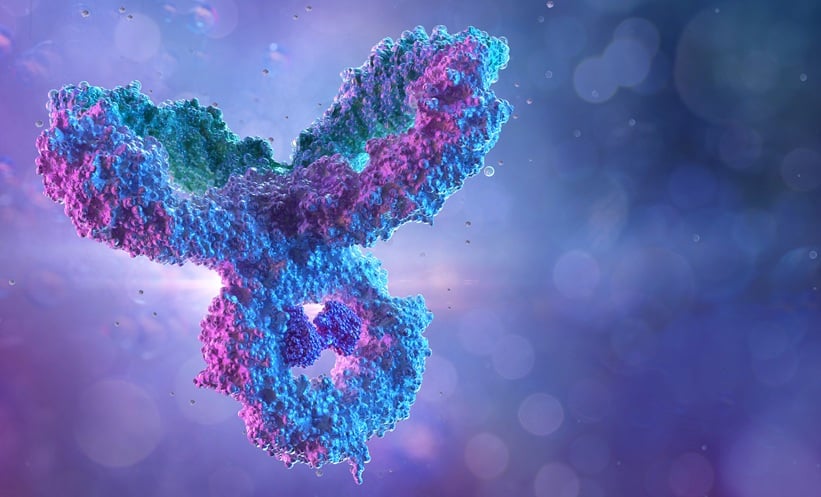NEW research has identified three human monoclonal antibodies (mAbs) that target the A35 protein of monkeypox virus (MPXV), blocking viral spread in vitro and protecting mice from lethal infection, offering a promising avenue for future orthopoxvirus treatments.
The 2022 mpox outbreak underscored the need for effective therapies. In this study, researchers isolated three high-affinity mAbs (EV35-2, EV35-6, and EV35-7) from a convalescent individual. Each antibody targeted the A35 dimer groove, a highly conserved epitope across orthopoxviruses. Binding analyses revealed that two of the antibodies utilised a conserved IGHD2-21-encoded CxGGDCx motif in the CDRH3 region for stable epitope recognition. Neutralisation assays showed that the antibodies prevented viral spread through both Fc-dependent and Fc-independent mechanisms.
In vivo, administration of the antibodies protected mice from lethal MPXV and vaccinia virus challenge. Importantly, serum samples from mpox-convalescent patients demonstrated elevated antibody levels against the same epitopic region, with higher titres linked to shorter symptom duration and reduced risk of hospitalisation. Systems-level multivariate analysis suggested that antibody populations targeting this region function cooperatively, with additive effects on clinical protection.
These results highlight A35 as a key therapeutic target across orthopoxviruses. The identified A35-specific mAbs not only show strong potential as candidates for next-generation treatments but also suggest that naturally occurring antibody responses against this conserved epitope may contribute to favourable clinical outcomes in mpox.
Reference
Fantin RF et al. Human monoclonal antibodies targeting A35 protect from death caused by mpox. Cell. 2025; DOI:10.1016/j.cell.2025.08.004.








